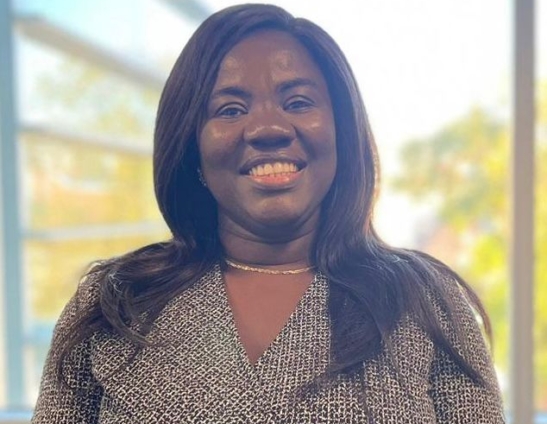The Ghana Maritime Authority (GMA) is set to embark on a bold expansion of its revenue generation strategies, aiming to enhance its contribution to the country's blue economy.
The Authority has identified key initiatives to serve landlocked countries in the sub-Saharan West African region and to capitalize on Ghana's unique position as a hub for maritime training and ship repair.
Under the leadership of Senior Finance Officer, Abena Serwaa Annor, the GMA has conducted an in-depth study to identify the limitations and opportunities to expand its revenue generation.
In a comprehensive assessment and feasibility studies chaired by Abena Serwaa and the finance Department, the Authority has realized that by training and hiring ship mechanics and engineers within Ghana, the GMA could generate approximately $10 million USD annually. This initiative aims to not only retain the revenue currently lost to other countries for ship repairs but also to position Ghana as a regional leader in maritime services.
"The potential for growth within Ghana's maritime industry is immense, stated Abena Serwaa Annor, Senior Finance Officer at GMA. By serving our neighbouring landlocked countries and expanding our ship repair capabilities, we can significantly increase our revenue and contribute to the broader economic development of Ghana. However, this requires a strong legal framework and the necessary parliamentary approvals to fully realize these opportunities."
The Director General of the Ghana Maritime Authority, Mr Peter Issaka Azuma also emphasized the importance of these initiatives in advancing the authority's mandate. "The expansion of our revenue base is crucial for the sustainability and growth of Ghana's maritime sector. We are committed to working closely with the government and other stakeholders to ensure that the necessary legislative frameworks are in place to support these initiatives."
The study also highlighted several challenges that the GMA must address, including inadequate logistics, infrastructure, and professional personnel. Despite these hurdles, the authority remains optimistic about its ability to drive substantial revenue growth and enhance its role as the sole maritime regulator in Ghana.
As the GMA prepares to implement these strategies, stakeholders in the maritime industry are watching closely, with the hope that these initiatives will unlock new opportunities and drive the sector's growth to new heights.
Latest Stories
-
Dr. Musah Abdulai: If the Chief Justice returns: Will it lead to reset, redemption, or rupture?
5 hours -
Tano Deity dispute: Bantamahene pardoned after offering guilty plea to Asantehene
5 hours -
Dumelo inaugurates Board of Tree Crop Development Authority
5 hours -
Akufo-Addo’s office denies reports of attempting to influence upcoming NPP Delegates Conference
6 hours -
WAFCON 2024: Second half brilliance against Tanzania takes Black Queens to quarter-finals
6 hours -
Dison International School holds colourful graduation to mark academic progress
6 hours -
UMaT launches IET-GH Student Chapter with a call to engineer a better future
6 hours -
Dialysis crisis: Cape Coast Teaching Hospital struggling to keep up with demand
6 hours -
NPP must not sideline Kufuor in key decisions – Dr Asah-Asante warns
6 hours -
Afenyo-Markin under fire for ‘strange elevation’ comment to Essikado MP ‘over’ Zanetor
6 hours -
Abanga Yakubu refutes allegations of leading unauthorised anti-galamsey operations
7 hours -
Minority, Majority MPs clash over credit for Ghana’s economic gains
7 hours -
2025 NPP Congress: Kufuor, Akufo-Addo to deliver virtual address to delegates
7 hours -
UG lifts ban on social gatherings amid improved COVID-19 situation
8 hours -
Cataract, glaucoma, and pterygium predominant in Ketu North Municipality
8 hours

